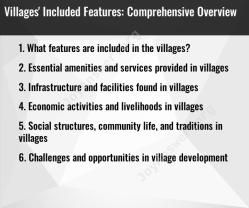What closing costs is a seller typically responsible for?
The specific closing costs a seller is responsible for can vary depending on local customs, negotiations, and the terms outlined in the purchase agreement. However, there are common closing costs that sellers often encounter. It's essential to consult with a real estate professional to understand the local market norms and any unique considerations. Here are typical closing costs for sellers:
Real Estate Commission:
- The largest cost for many sellers is the real estate commission, which is usually a percentage of the sale price. This commission is typically split between the seller's agent and the buyer's agent.
Title Insurance:
- Sellers often pay for the owner's title insurance policy, which protects the buyer and the lender against any title defects.
Transfer Taxes:
- Transfer taxes are fees imposed by state or local governments on the transfer of property. In some areas, sellers are responsible for paying these taxes.
Closing Agent Fees:
- The closing agent or escrow company may charge fees for handling the closing process and ensuring that all necessary documents are in order.
Prorated Property Taxes:
- Sellers are responsible for property taxes up to the closing date. The amount is usually prorated, meaning the seller pays for the portion of the year they owned the property.
Outstanding Loan Balances:
- The seller is responsible for paying off the remaining balance on their mortgage, including any prepayment penalties if applicable.
Home Warranty:
- Sellers sometimes offer a home warranty to the buyer as an incentive. While this is negotiable, if the seller agrees to provide a home warranty, they are typically responsible for the associated cost.
Attorney Fees:
- In some regions, sellers may be required to have an attorney represent them during the closing process. Attorney fees are typically the responsibility of the seller.
Home Repairs or Credits:
- If the home inspection reveals issues that need to be addressed, the seller may be responsible for covering the cost of repairs or offering a credit to the buyer at closing.
Homeowner Association (HOA) Fees:
- If the property is part of a homeowners association, the seller may be responsible for paying any outstanding HOA fees or transfer fees.
Escrow Fees:
- Escrow fees cover the costs of the escrow service that facilitates the closing process, including holding funds in an escrow account until all conditions are met.
Recording Fees:
- The cost of recording the sale with the local government office is typically borne by the seller.
It's important to note that the allocation of closing costs can be negotiated between the buyer and the seller, and local customs can influence who traditionally pays for certain fees. Sellers should review their settlement statement, often provided by the closing agent, to understand the breakdown of closing costs for their specific transaction.
Overview of Closing Costs
Closing costs encompass a variety of fees and expenses associated with the finalization of a real estate transaction. These costs are typically paid by the buyer, but in some cases, the seller may also contribute to or cover certain expenses. Common closing costs include:
Real Estate Agent Commissions: Commissions are paid to real estate agents for their services in facilitating the sale of the property. The commission rate is typically a percentage of the purchase price and is split between the buyer's and seller's agents.
Title Insurance: Title insurance protects the buyer from potential liens or encumbrances on the property title. The cost of title insurance varies depending on the property value and location.
Appraisal Fees: An appraisal is an assessment of the property's fair market value, often required by lenders to ensure the loan amount does not exceed the property's value. Appraisal fees are typically paid by the buyer.
Lender Fees: Lender fees, such as origination fees, underwriting fees, and credit report fees, are charged by the lender for processing and approving the mortgage loan.
Government Fees: Government fees, such as recording fees, transfer taxes, and property taxes, are imposed by local and state governments as part of the property transfer process.
Closing Costs Covered by the Seller
In some cases, the seller may agree to cover certain closing costs to make the property more attractive to buyers. These costs may include:
Prorated Property Taxes: Prorated property taxes represent the portion of property taxes that the seller is responsible for paying for the period they own the property during the current tax year.
Homeowner's Association Fees: If the property is located in a community with a homeowner's association (HOA), the seller may cover unpaid HOA fees or prepay future HOA fees.
Escrow Fees: Escrow fees, which cover the costs associated with the escrow company's services in handling the transaction, may be partially or fully paid by the seller.
Negotiating Closing Costs
The allocation of closing costs between the buyer and seller is a subject of negotiation during the real estate transaction. Buyers can negotiate with sellers to cover a portion of the closing costs, making the property more affordable. Conversely, sellers can negotiate with buyers to cover certain costs to reduce their financial burden.
To effectively negotiate closing costs, buyers and sellers should:
Understand the breakdown of closing costs: Review the closing cost estimate provided by the title company or lender to understand the specific fees involved.
Consider market conditions: Evaluate the current real estate market and assess the seller's motivation to sell. In a strong seller's market, sellers may have less incentive to negotiate closing costs.
Communicate clearly and negotiate in good faith: Open and honest communication is crucial for reaching an agreement that is fair to both parties.
Seek professional guidance: Consider consulting with a real estate agent or attorney to provide guidance and advice on negotiating closing costs.












